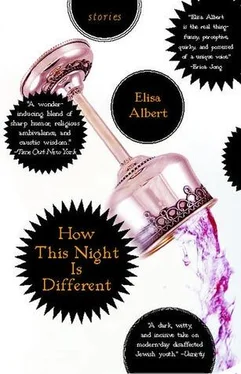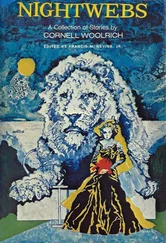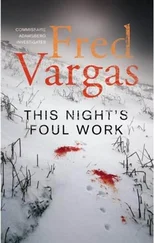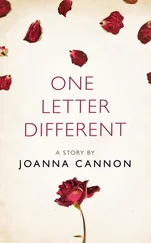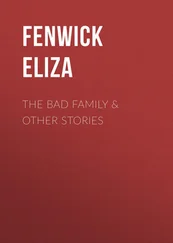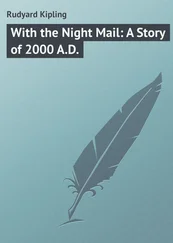“Auschwitz,” Max had written, “has changed my whole entire outlook on life. I will never be the same.”
“Fine,” she says brightly. She knows Jonah beyond what he knows she knows. She knows, for instance, that he had gone out with a girl named Carolyn, and had been much envied by Max for his ability to hold Carolyn’s hand at Treblinka.
Jonah gives her a friendly shove. “Can you believe you’re here ?”
She shrugs, smiles, hopes he’ll touch her again.
They had arrived in Kraków two days earlier, tumbling off the plane and into the airport like a bunch of actors playing refugees: energetically bewildered, much too quiet, the bloom off the rose of the trip already, their polar fleeces rumpled, their faces imprinted with the stiff folds of airline-issued pillows.
“Baggage claim four, everyone!” Rabbi Amy had yelled somewhat maniacally, counting and recounting heads. Shayna had been aware only of what felt like dozens of Polish eyes on her (did they know who she was? Did they know why she was here?), and wished Rabbi Amy would keep it down a little. She knew what all the Poles would be thinking: that there was a group of Jews at the airport and they were loud, they took over the space, they smelled funny, like the insides of two airplanes. It was so unfair, Shayna thought, shouldering her backpack and hitching her foot up onto a plastic row chair to double knot her shoelace before falling back in line with the herd: These people only knew about Jews in groups.
When the carousel at baggage claim four remained empty and motionless, Ari Freed had patiently explained the situation to Jessica, who seemed somehow to have become his girlfriend over the course of the flight.
“Things are different here, babe,” he’d said, fingering the waistline of her stretch flare track pants, a wavy lock of his hair falling delicately over one eye. “They’re not as efficient, or whatever.” Then Jessica and Ari had embraced, fortifying themselves against the myriad cruelties — past, present, and still to come — of Poland. “I hope my guitar’s okay, though,” he said, suddenly, stricken. “Seriously.”
Rose-Ling Horowitz and Jamie joined up with Jessica and Ari in a circle on the cracked linoleum airport floor, and Ari dealt them all cards. Shayna sat on her backpack and hugged her knees.
On the bus they took seats that Rabbi Amy — too late! — informed them would be theirs for the entirety of the trip. Shayna’s was a window seat in the middle, on the right-hand side. Next to her was Zoe Fischler, who seemed nice enough but who had hardly said a word so far. Zoe’s grandmother was a survivor, which Shayna knew because when she turned to Zoe to say “hey” that first day, Zoe had continued staring straight ahead, offering, only, in a monotone: “My bubbe ’s a survivor.” Shayna deduced that this meant she was not to talk to Zoe about anything commonplace, not to try and commiserate about what snotty bitches Jamie and Jessica and Rose-Ling were, not to intrude with the profane.
“Oh,” Shayna had said. “I’m sorry.” But she wasn’t sure what she was sorry for. That Zoe’s bubbe had survived? “I mean — that’s awful.” It was awful that she’d survived? And then, finally: “It’s great that she survived.” Zoe nodded sadly.
Behind them, in the last row, Ari had gotten out his guitar and, as the bus rumbled into motion, could be heard picking out “Blackbird.”
Jonah was sitting at the front, next to Rabbi Amy, who’d introduced herself as “Rabbi Amy” and so didn’t seem to want to be called simply either “Rabbi” or “Amy.” She had sharp little features, lank orange hair parted sternly down the middle, and wore a crocheted lavender kippah.
“Welcome to Kraków!” Jonah bellowed into the bus PA as they drove out past the airport through big empty fields of grass. One kid up near the front broke out into claps and even a “Wooo-hooo,” and Ari had just gotten to the line about how you were always waiting for this moment to arrive, but the rest of them remained appropriately silent, riveted to their windows as if to so many movie screens.
Shayna had never been farther than the eastern seaboard, unless you counted one trip to Canada to have Passover with her second cousins (which she did not, as it had involved only one jaunt to a local mall and otherwise had been entirely contained to their house). Poland, despite her deep familiarity with Max’s journal, was a thing so far beyond her actual experience that she drilled herself to stay alert, stay aware, note the shape and hue of each blade of grass, each telephone pole whizzing past. To this end she had gotten out the journal, a pretty blue-silk-covered confection she’d painstakingly chosen from among dozens at the mall the week before. She clicked her pen a few times over the virginal white first page, relieved to be the younger sibling. There would be no one after her, no one to snoop around in her room when she went to college, no one for whom she’d be cast as unwitting guide. She wrote the date, and then: “Well, here we are in Kraków.”
The words were uneven, though; it was impossible to write smoothly while the bus lurched along. Ugly penmanship was extremely hateful to Shayna, for whom perfectly rendered, heart-dotted -i yearbook testimonials were a virtue, a character achievement worthy ultimately of Jessica and Jamie’s friendship, of grinning, shiny-haired, glossed-mouth snapshots tacked to a bulletin board in a future dorm room.
The words themselves, too, felt inadequate and wrong; the “well” distant and formal, the “here we are in Kraków” obvious. She had blighted her pretty blue journal with this inauspicious beginning. It deserved better. Something jaunty and adventurous, all-encompassing. Something factual but deeper than that. Like Max’s, but new and hers. She tore out the page carefully, along the binding, and spent the rest of the ride ripping it into ever-smaller confetti, which she let fall, finally, into the nether regions of her backpack like industrial snow.
In the lobby of the Hotel Continental, Rabbi Amy had handed stuff out. They each got blue windbreakers (One Size Fits All), blue plastic name tag holders with attached pins, and blue binders for handouts, everything emblazoned with the program’s insignia: a Star of David encircled by the words “We Are the Living!” It was everywhere, this statement, stamped defiantly onto everything inanimate. The T-shirts Jonah and Rabbi Amy wore, the luggage tags they’d gotten in the mail two weeks earlier; all things material insisted on it: They were alive, all of them, really, truly, here, breathing.
“In case there was any doubt,” spat Heather Golden at the cover of her binder that first night. Heather’s mom was friendly with Shayna’s from volunteer work at the Scranton JCC, and it was thus assumed that they would be pals, but Shayna didn’t want to commit; Heather was Goth, the whole nine yards, black hair, black lipstick, black nail polish, eyebrow ring fastened with a little stainless-steel ball.
Shayna, in truth, found the We Are the Living accoutrements pretty awesome. Max’s, when he’d returned from his trip swathed in such exclamations of Life, had cut a dashing figure for the implication that said life had begun in Poland, that he knew secret things, the knowledge of which imbued him with special powers, a special place in the world. She had been only ten at the time, and to see him get on a plane wearing innocuous jeans and a red-hooded sweatshirt and then get off another plane only a few short weeks later wearing the windbreaker and assorted accessories identifying him as The Living — well, she had been completely awestruck.
Читать дальше
